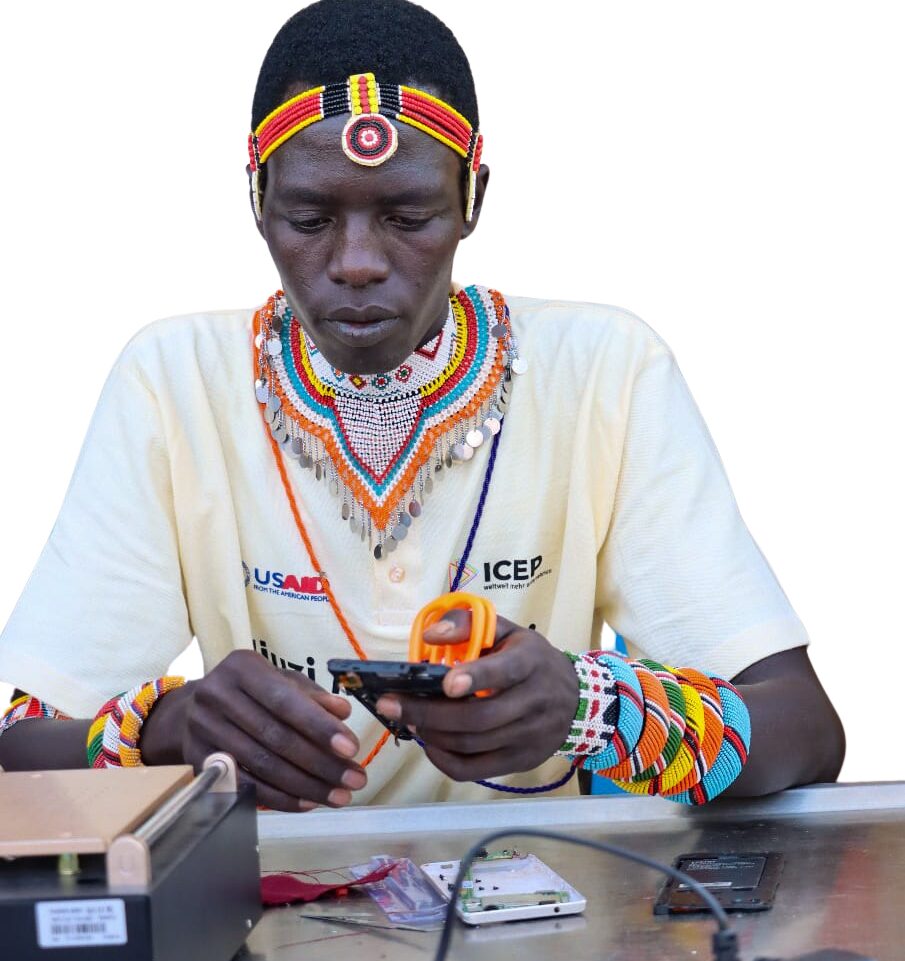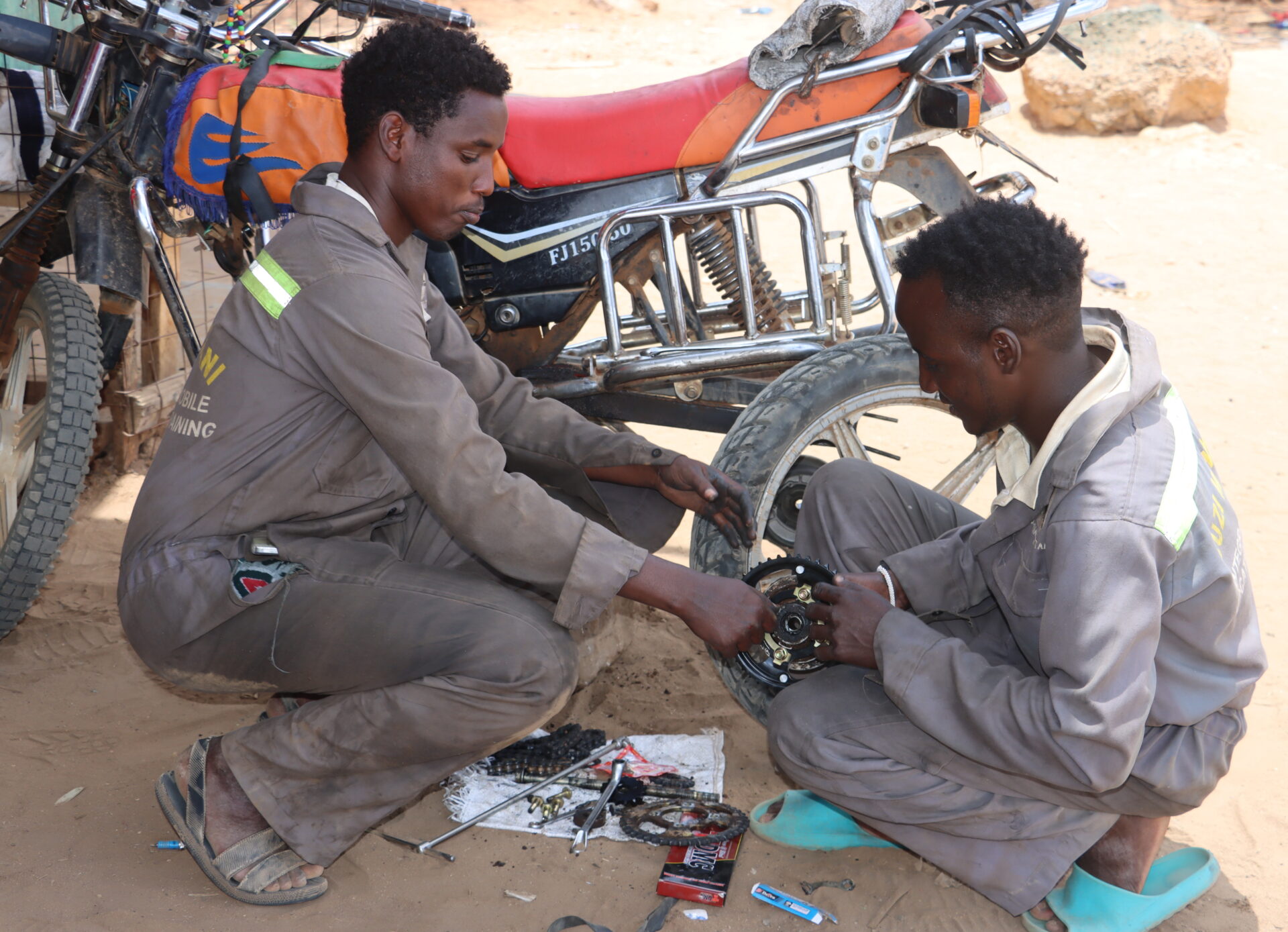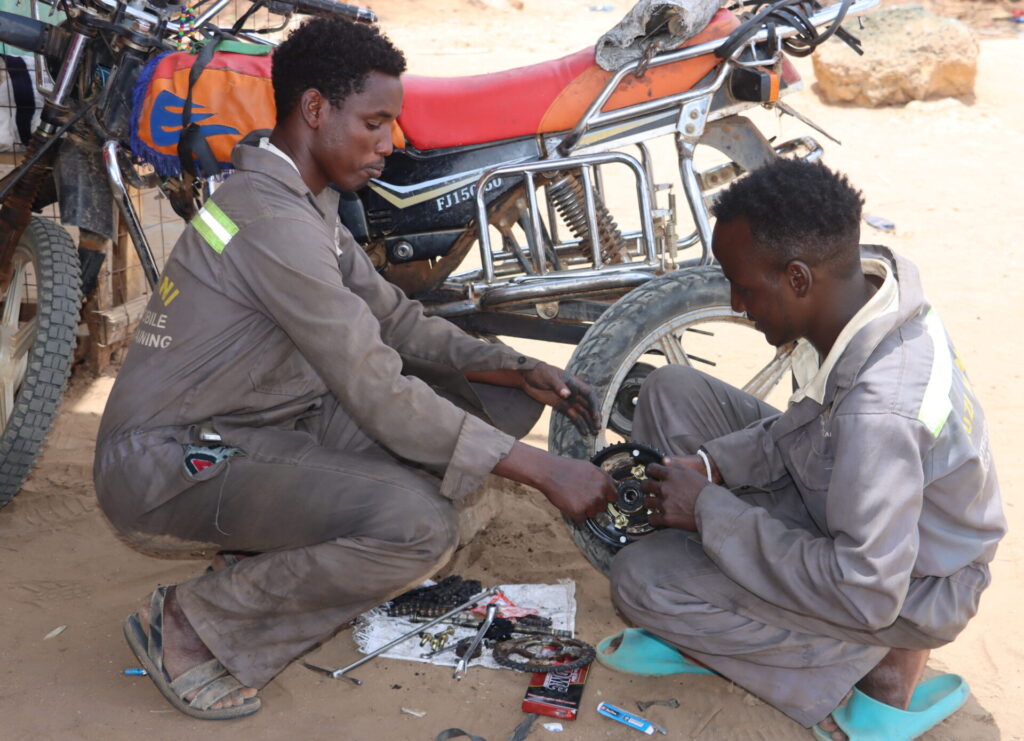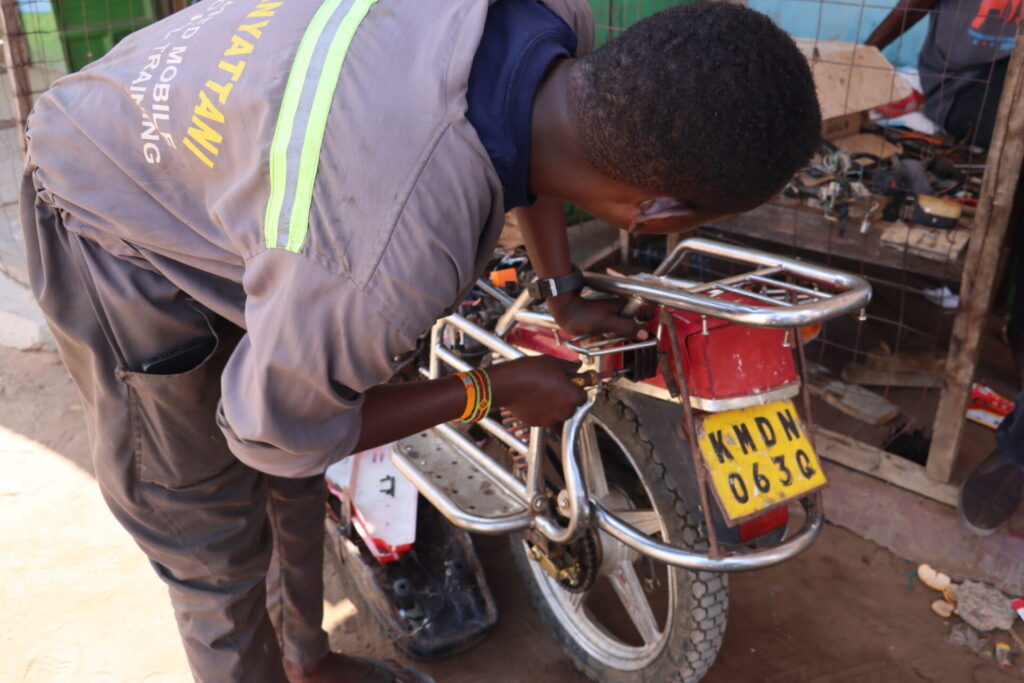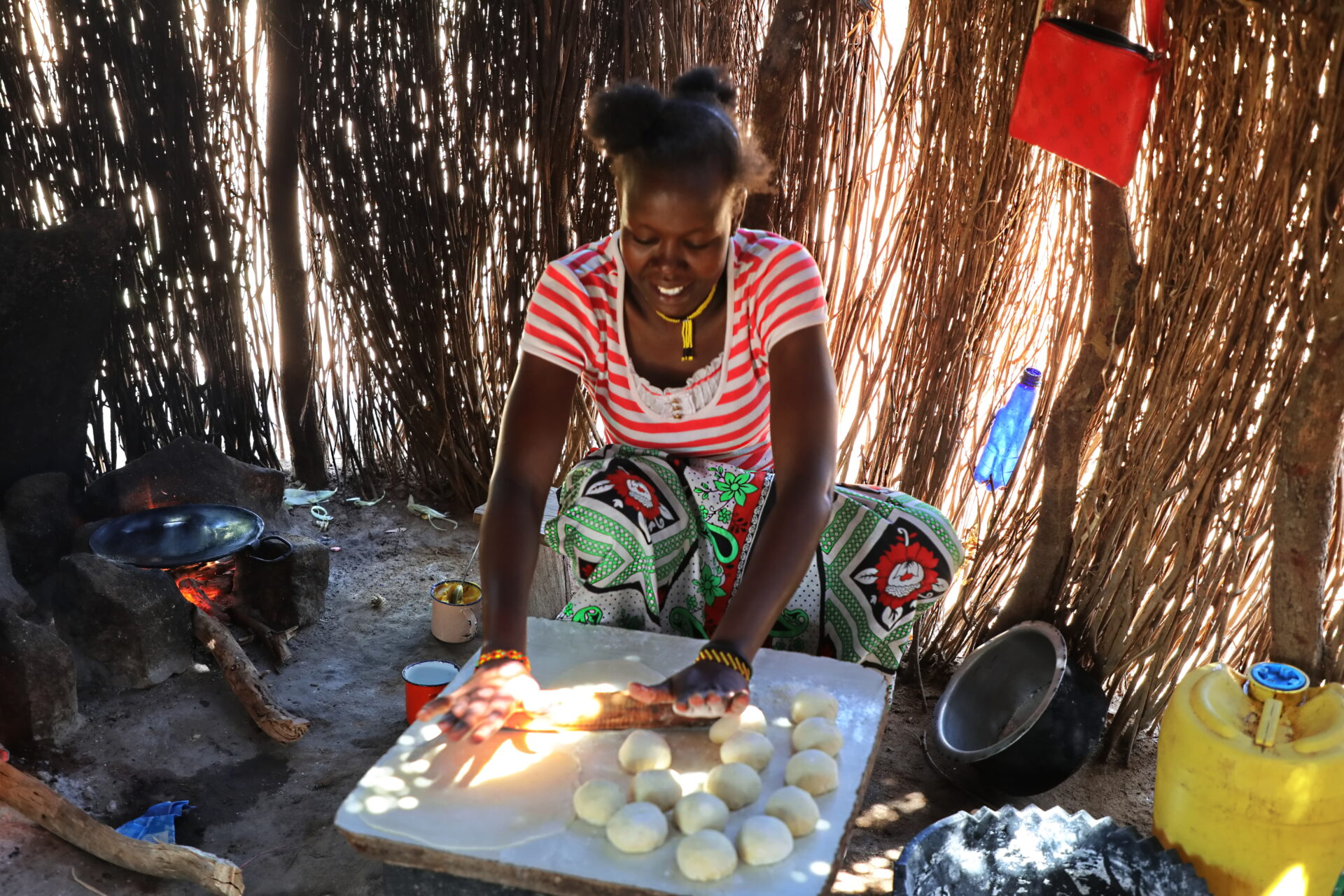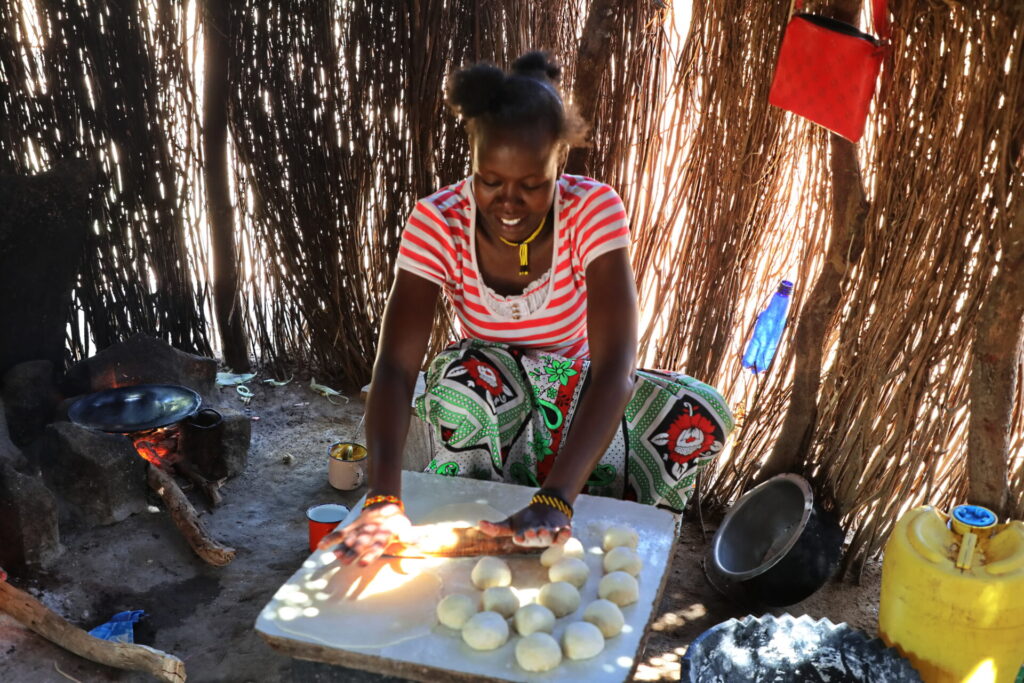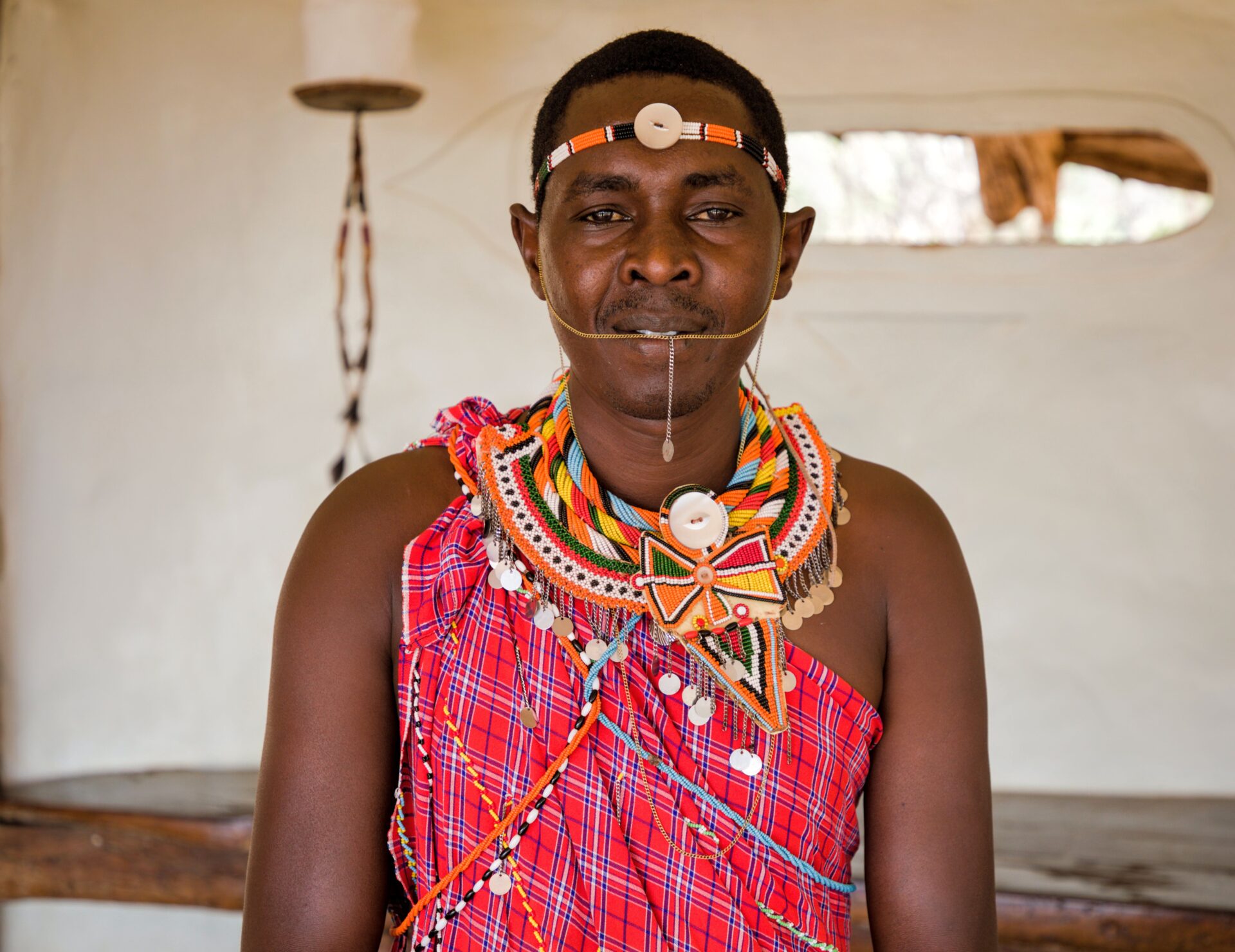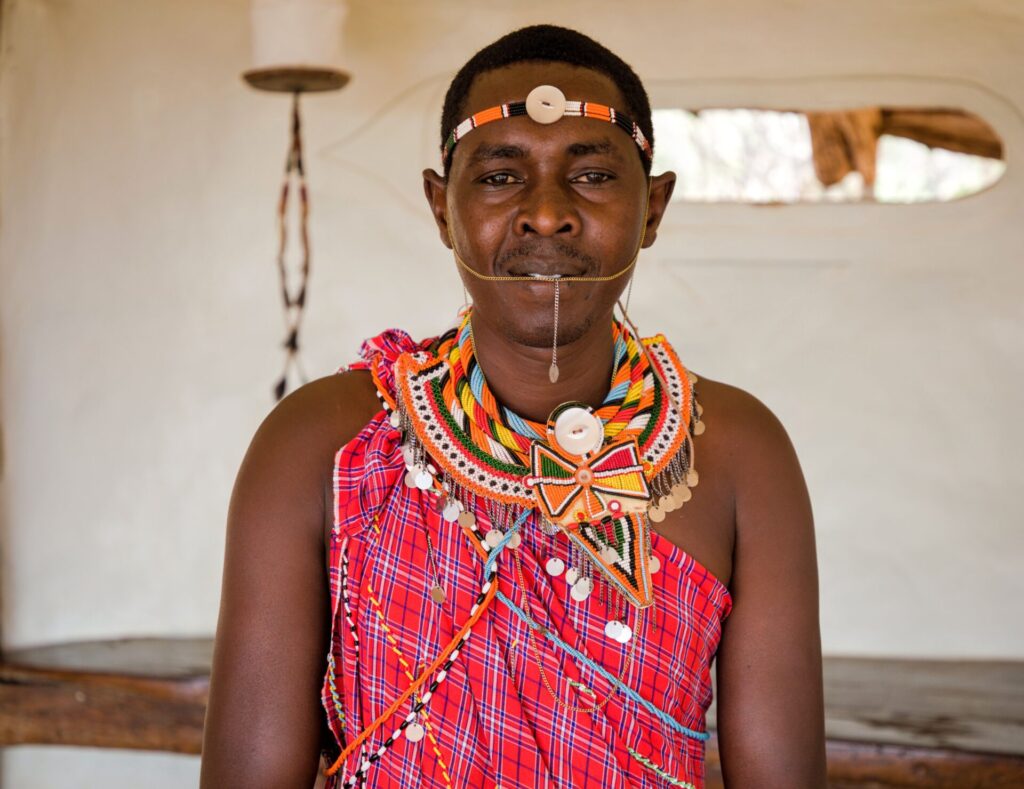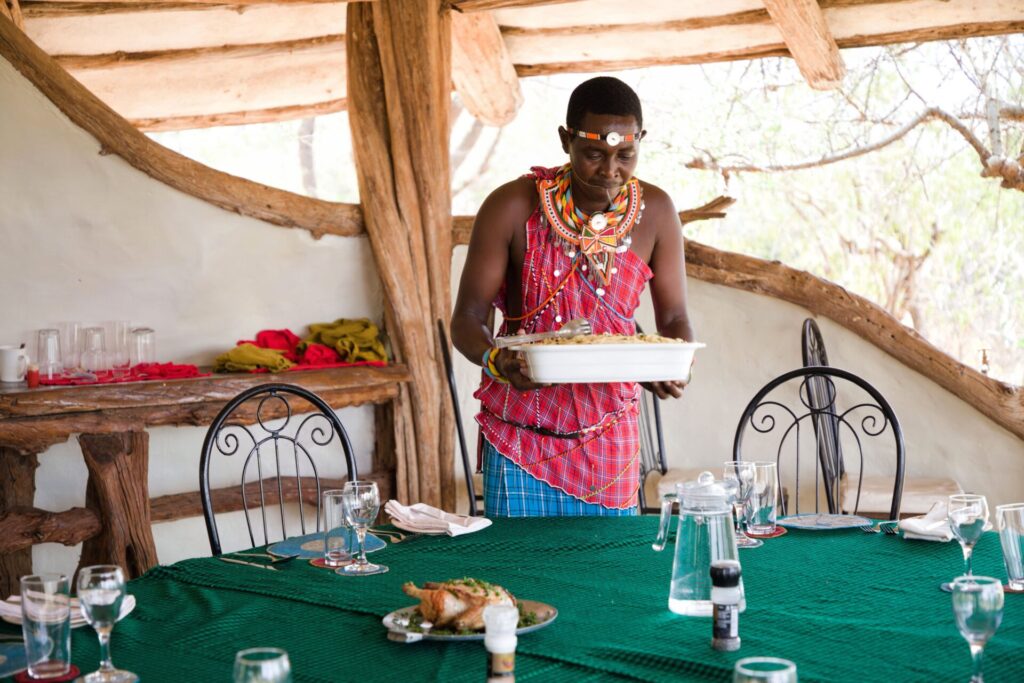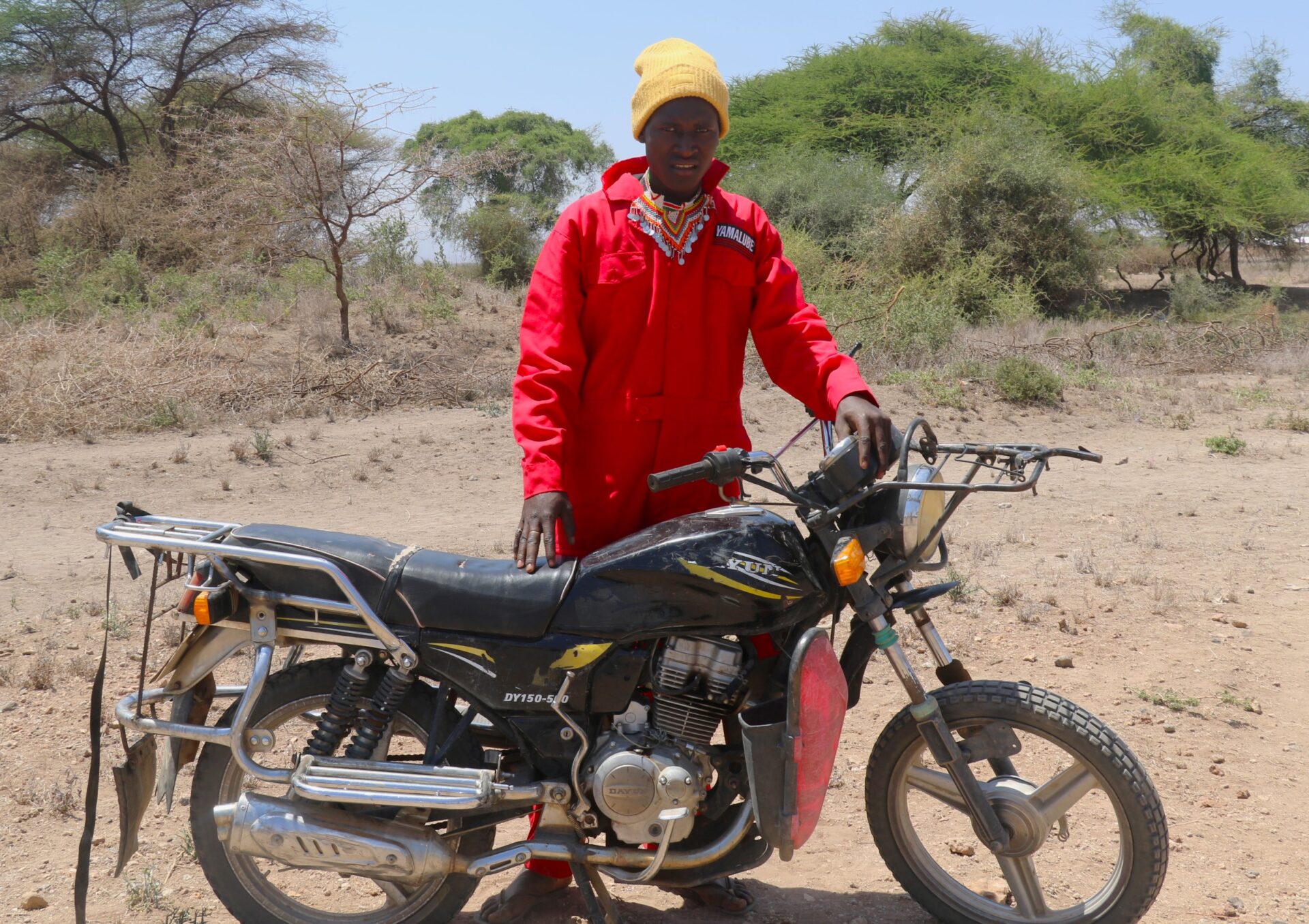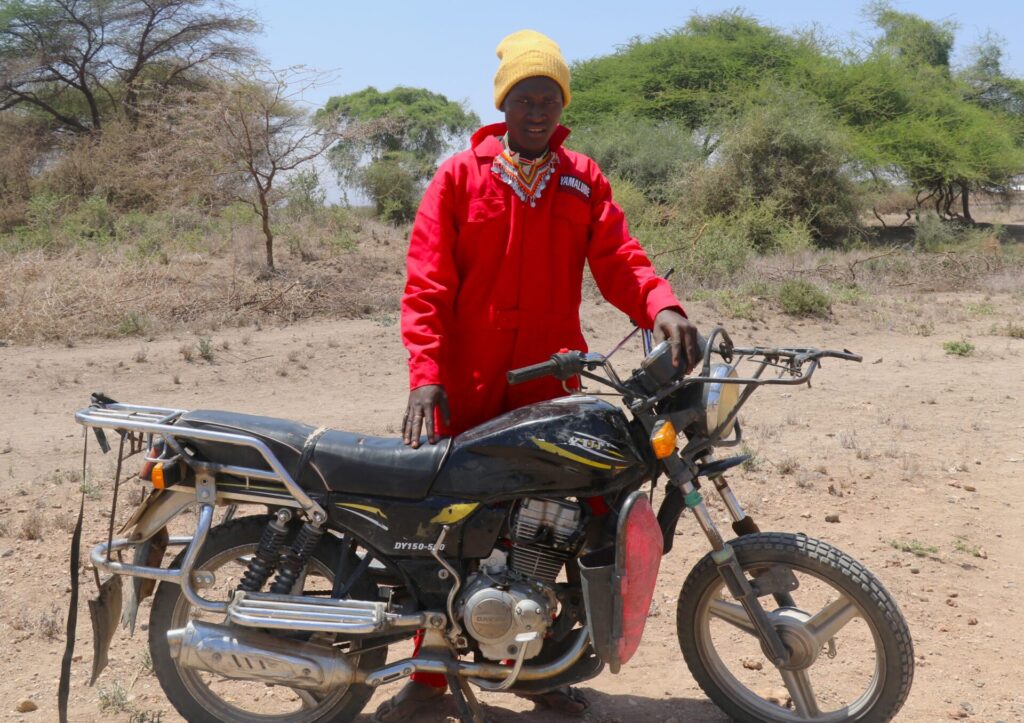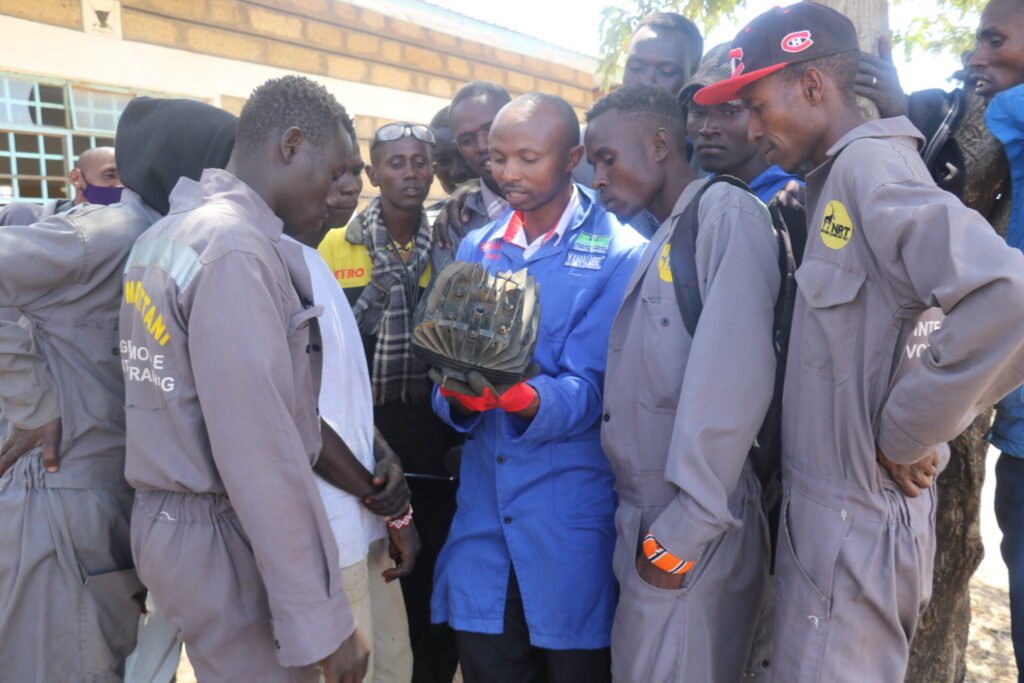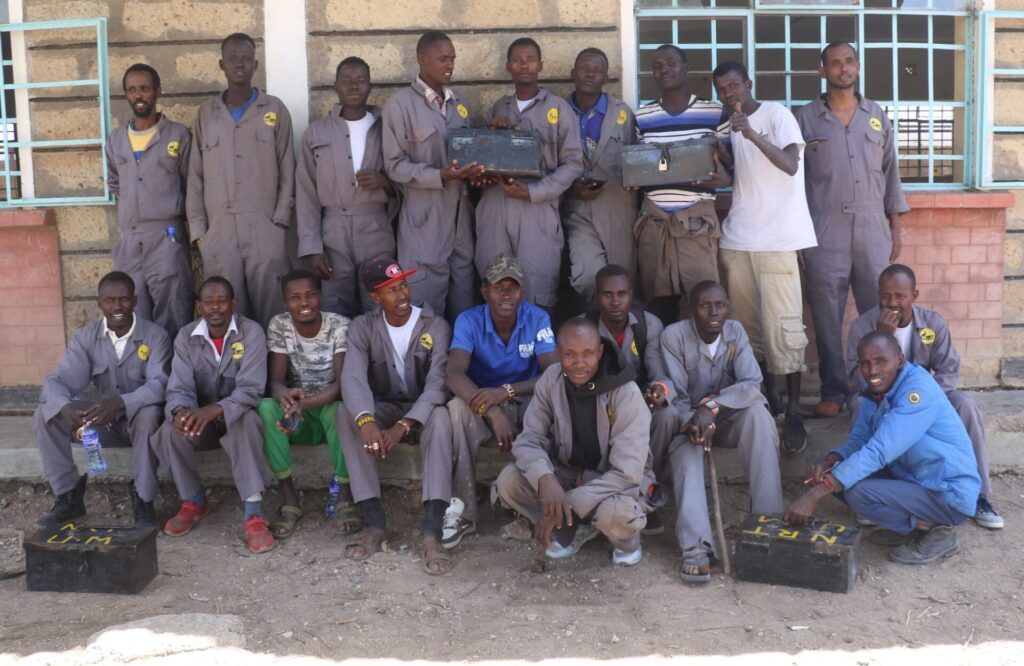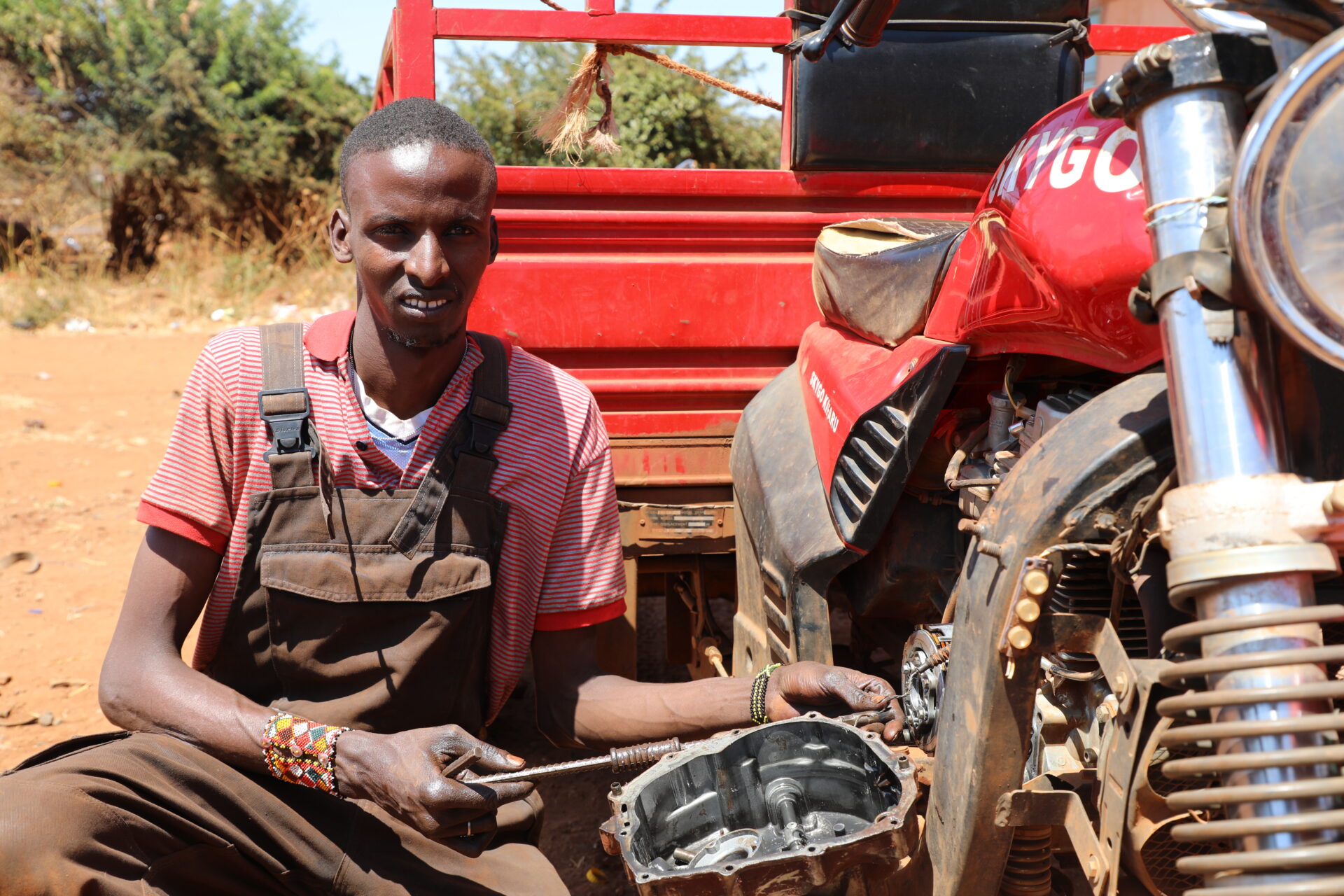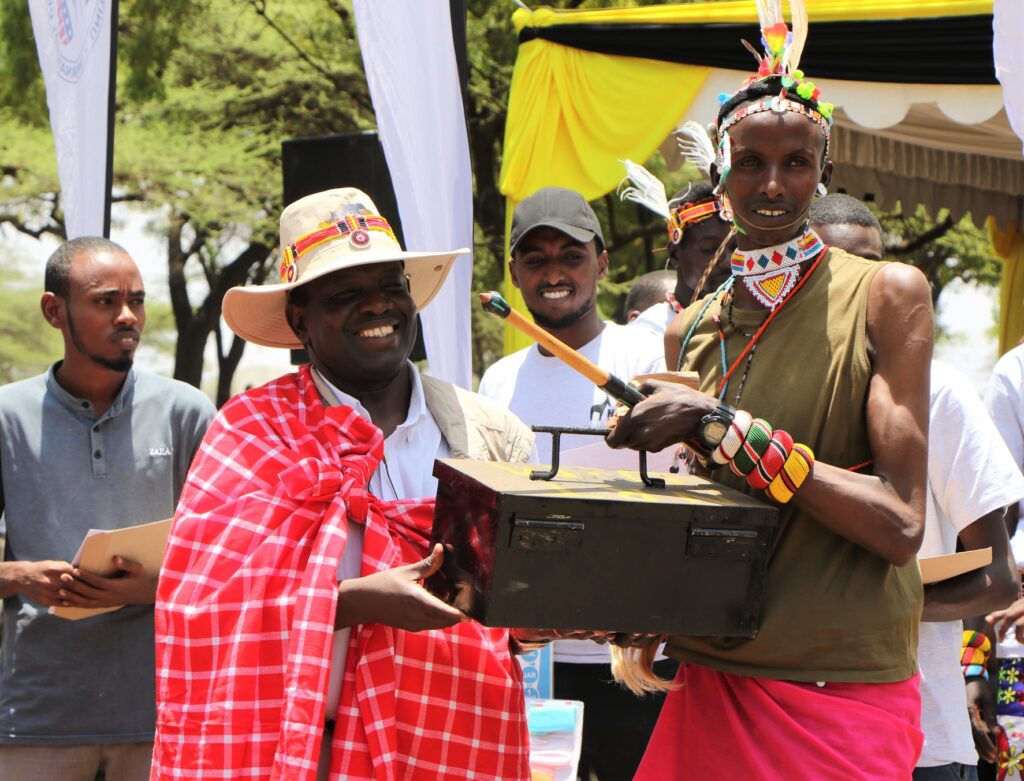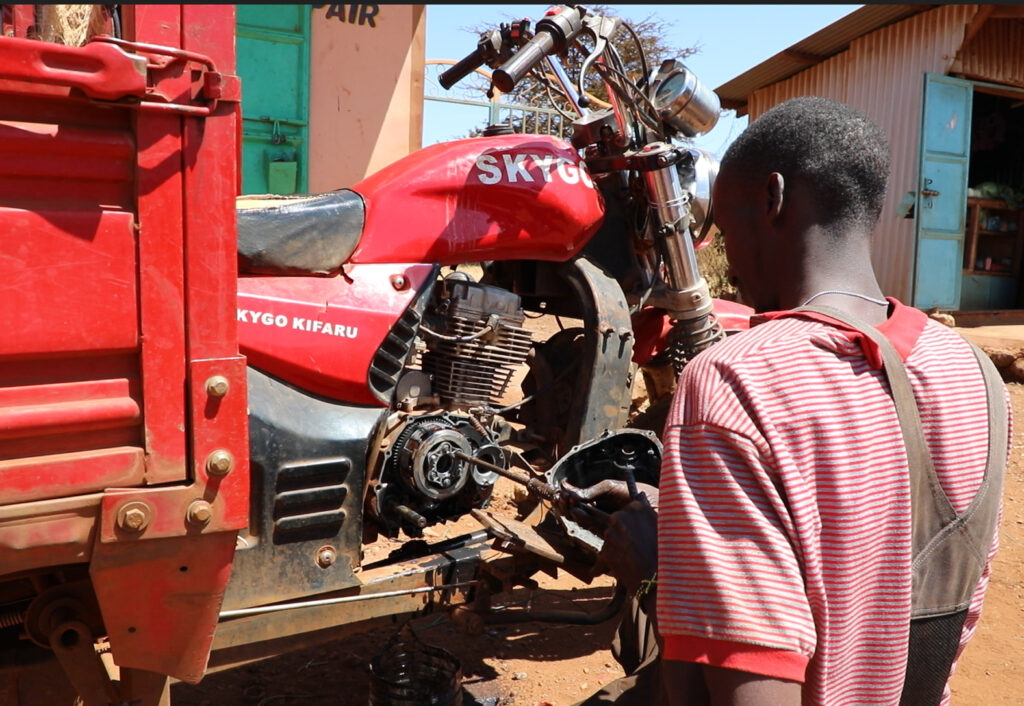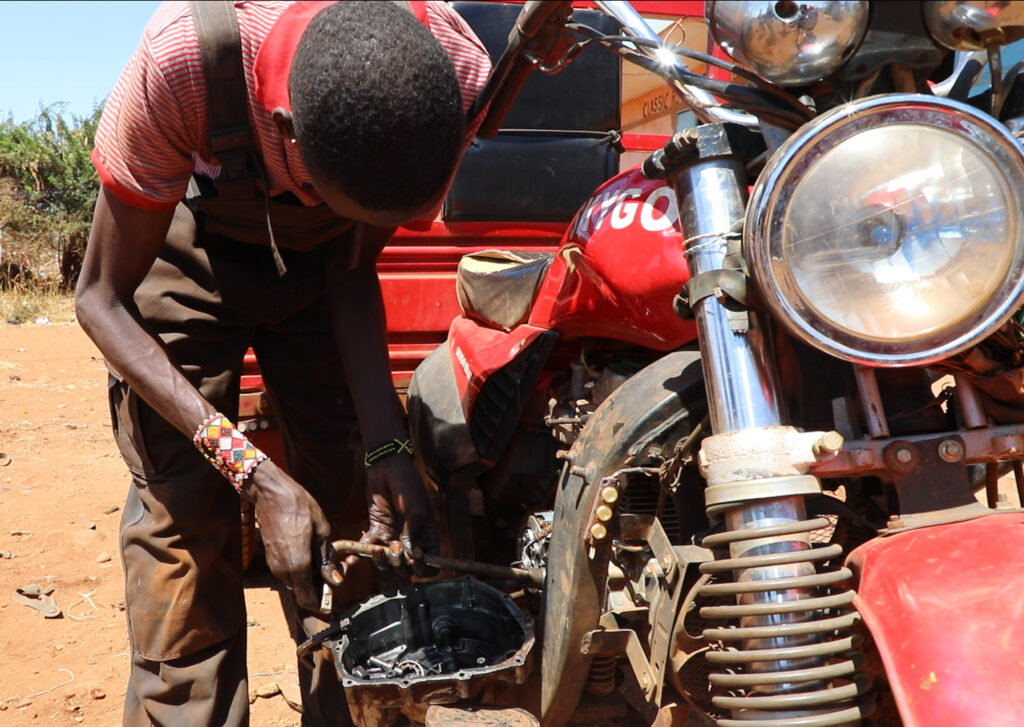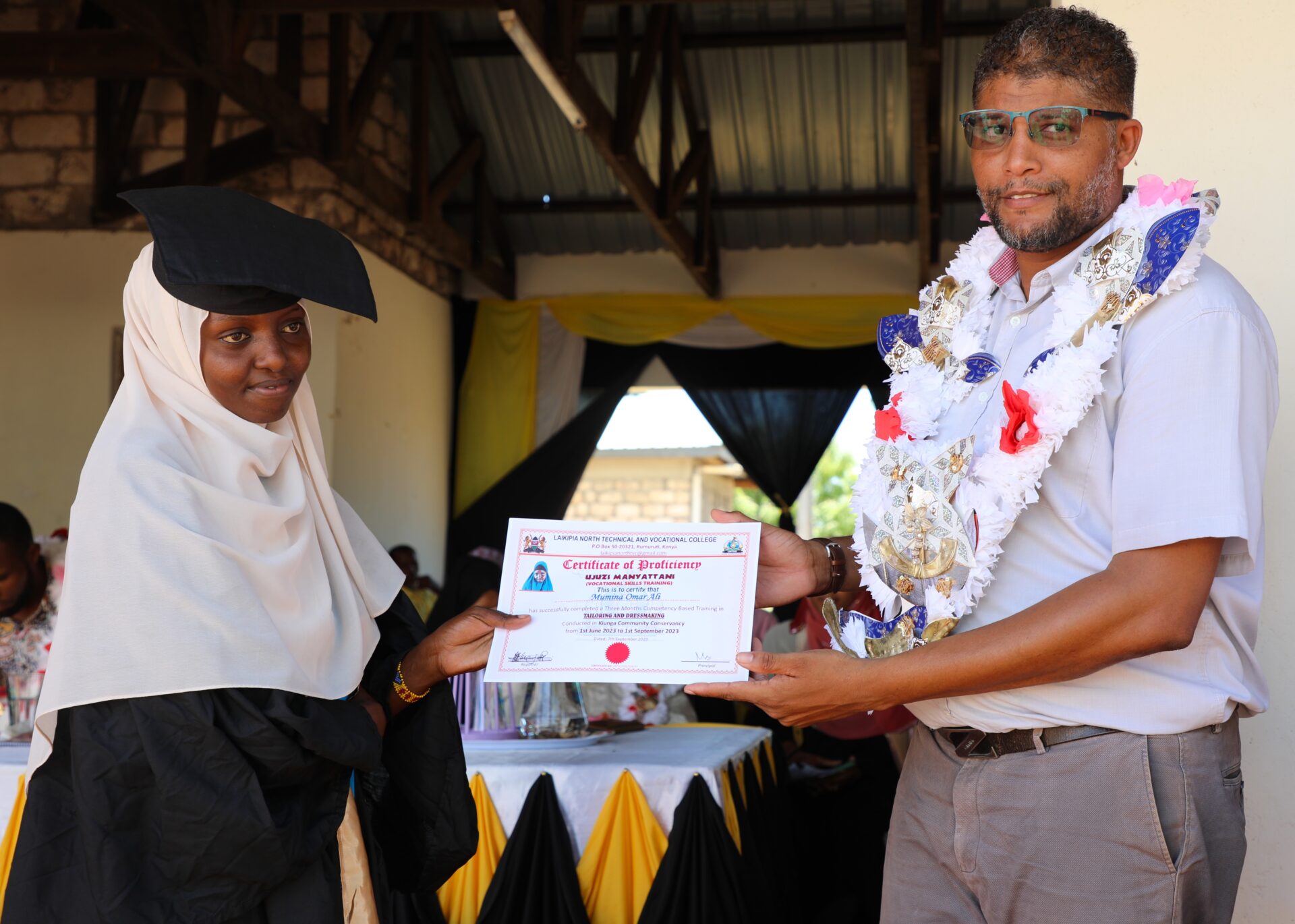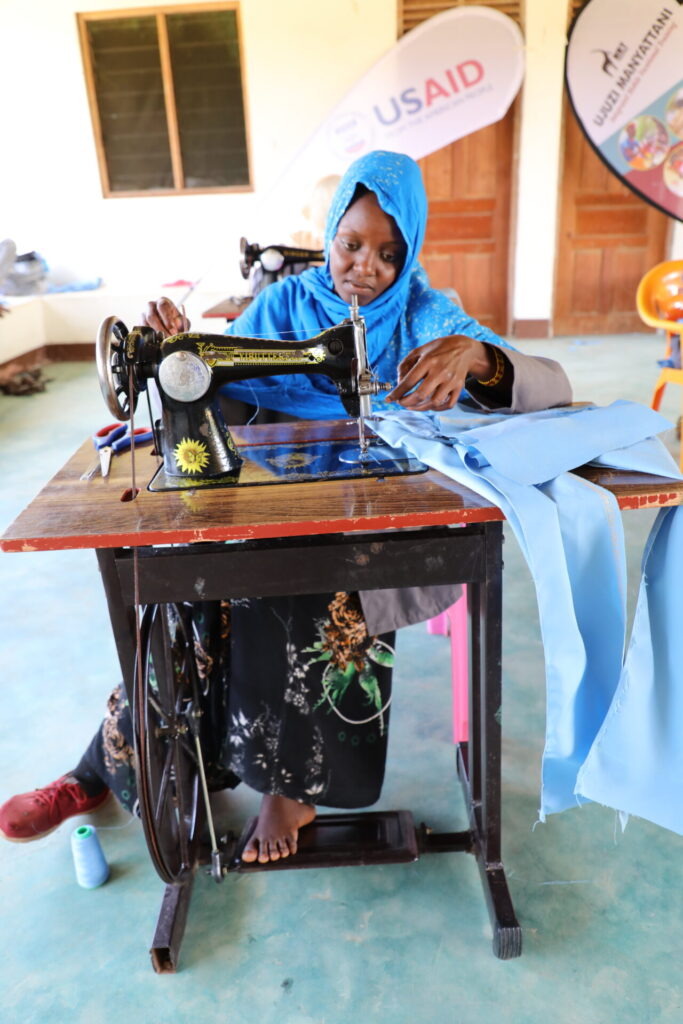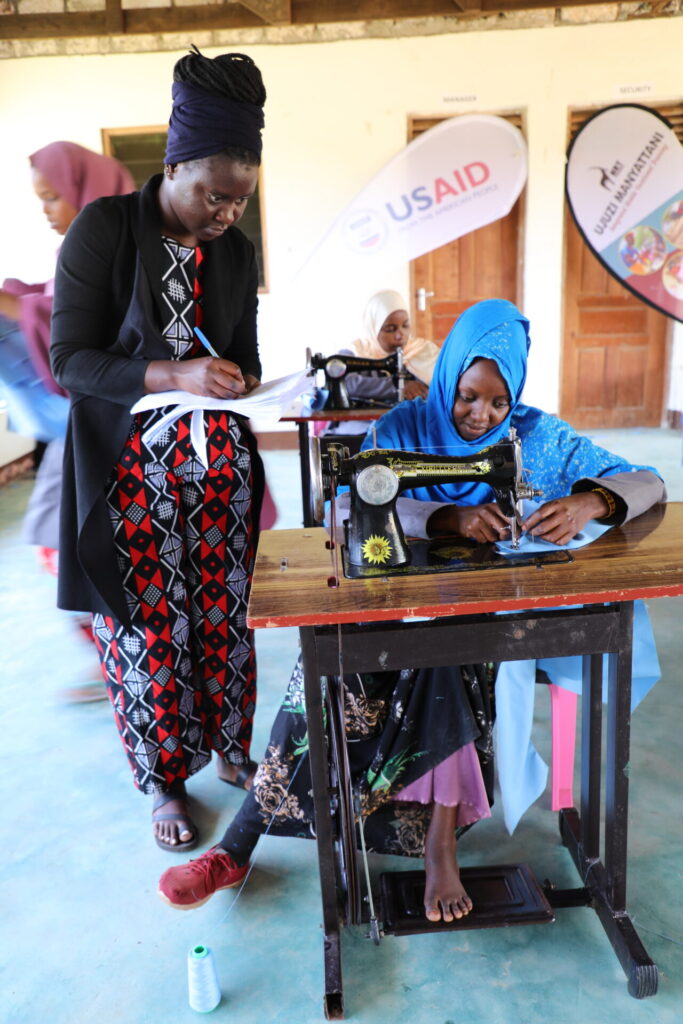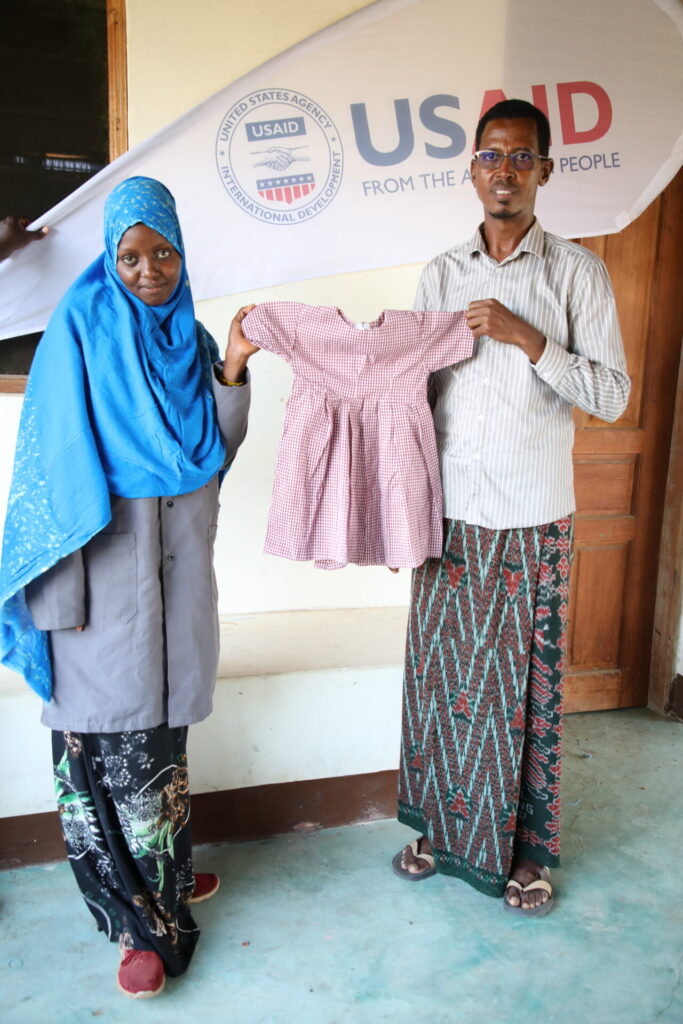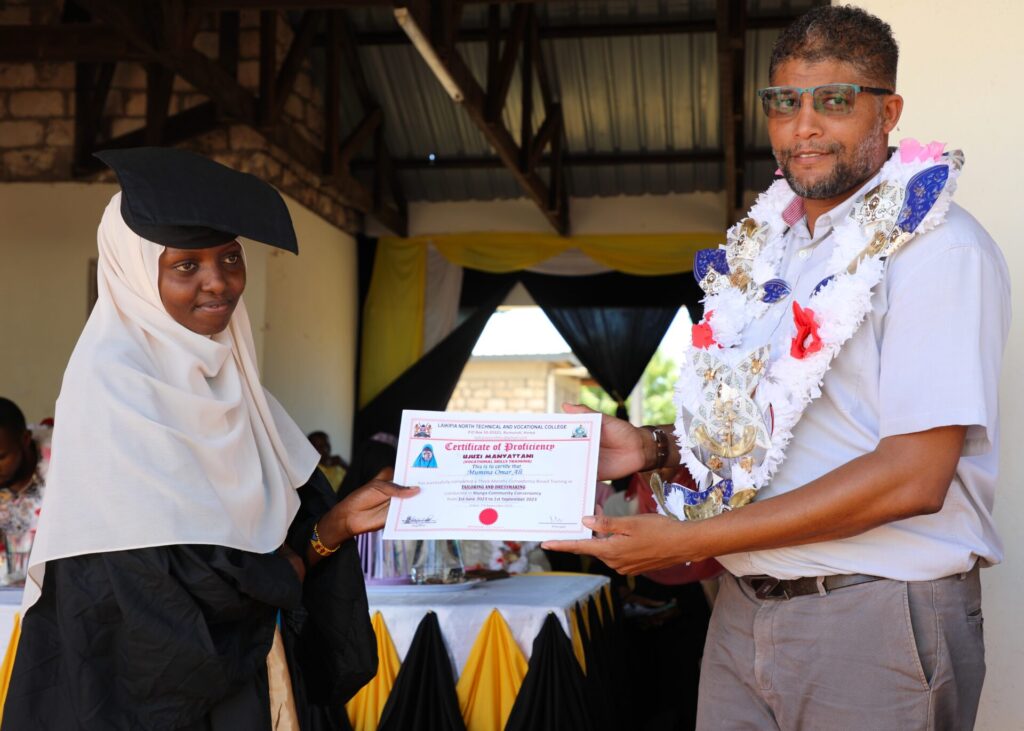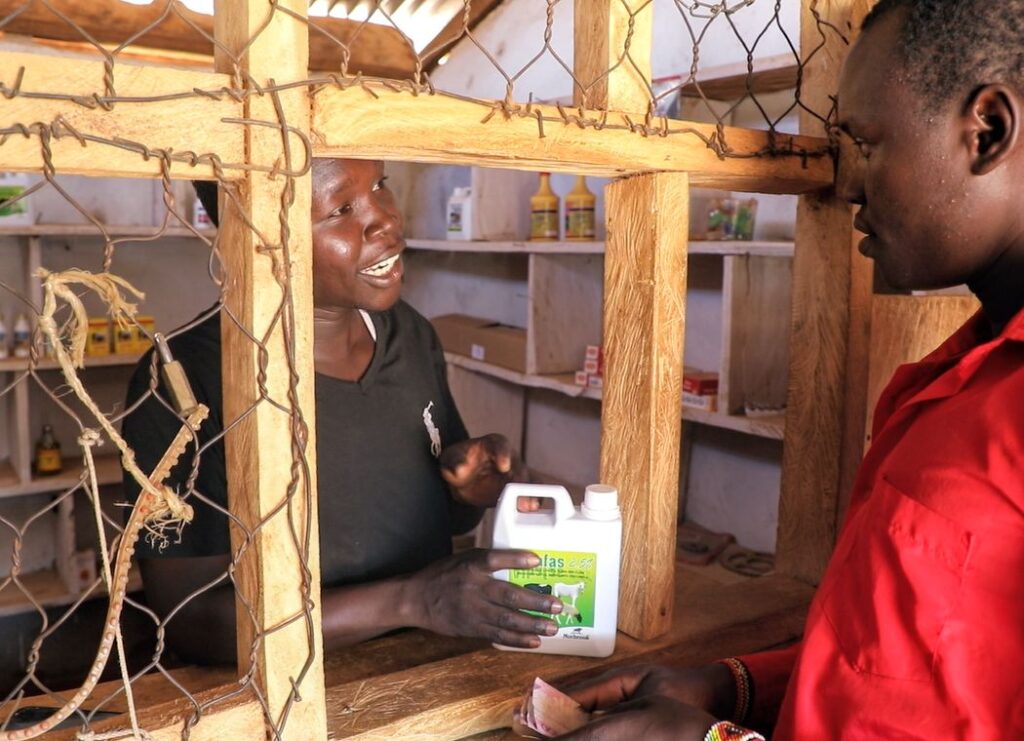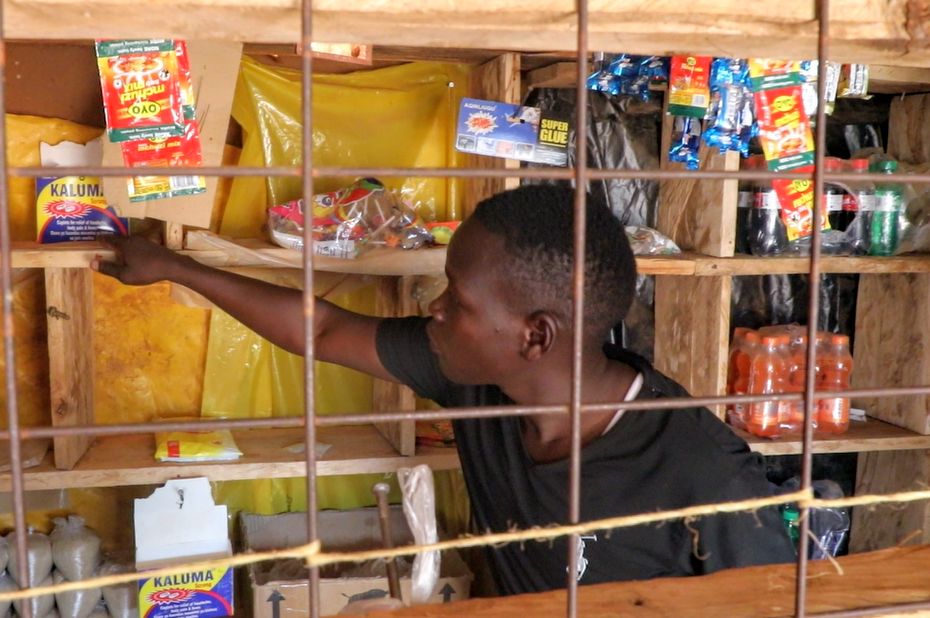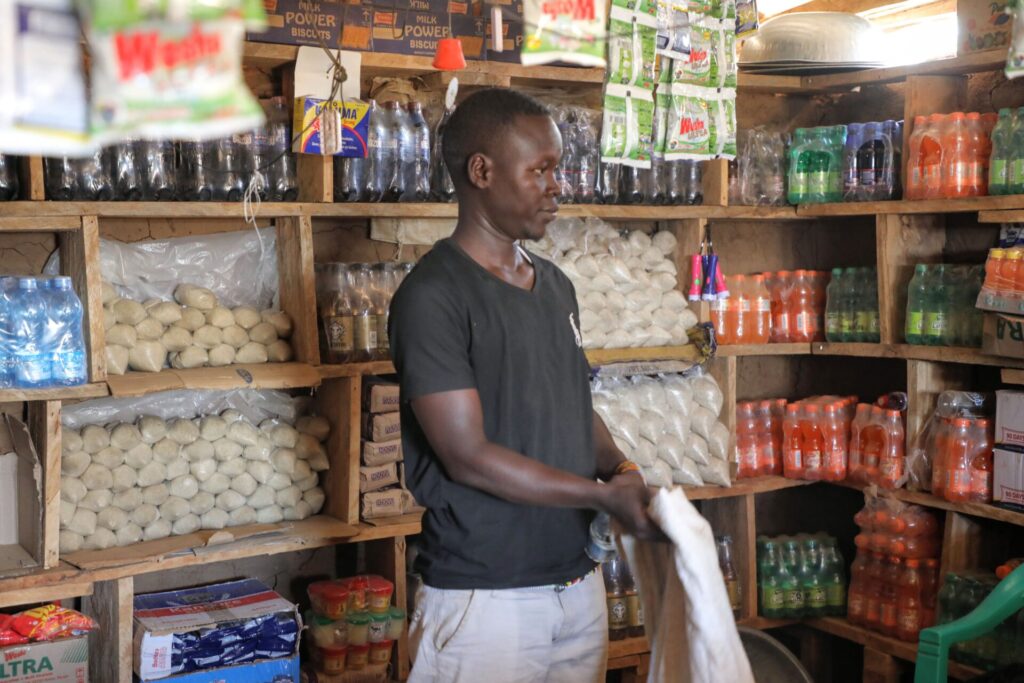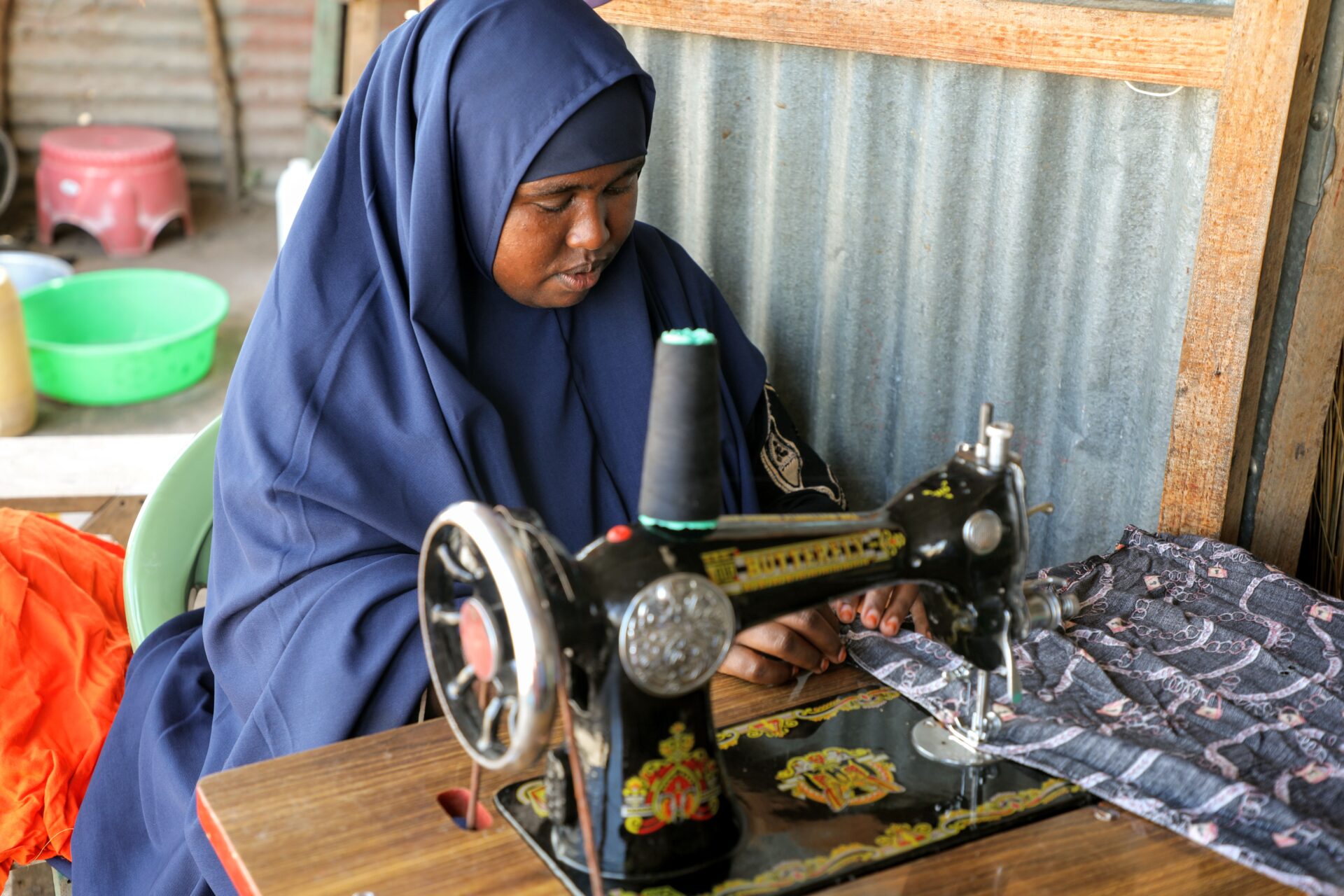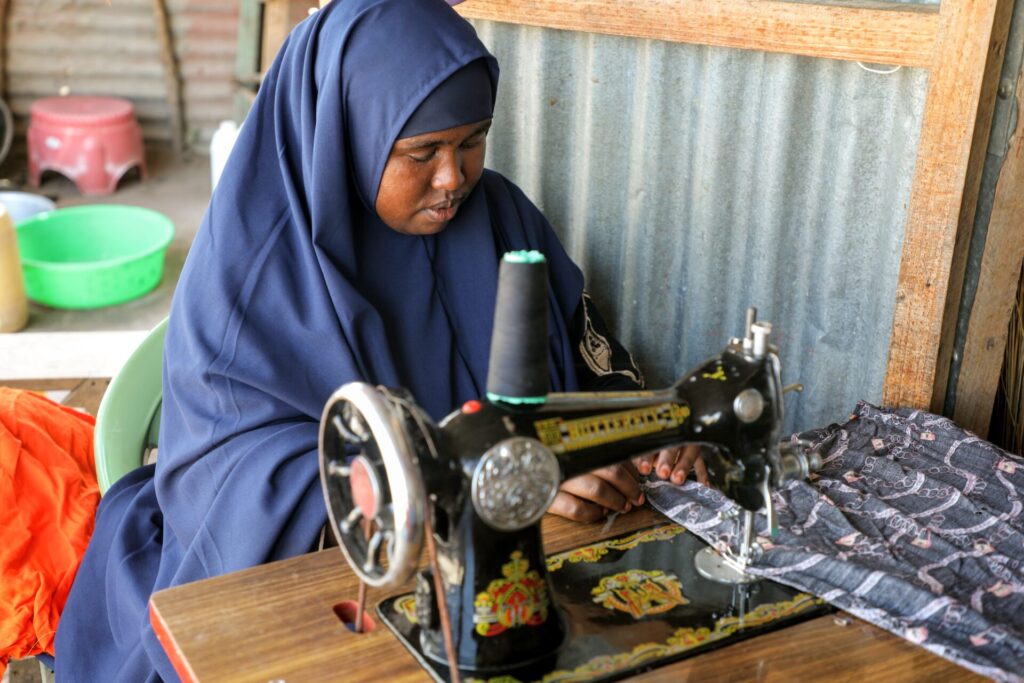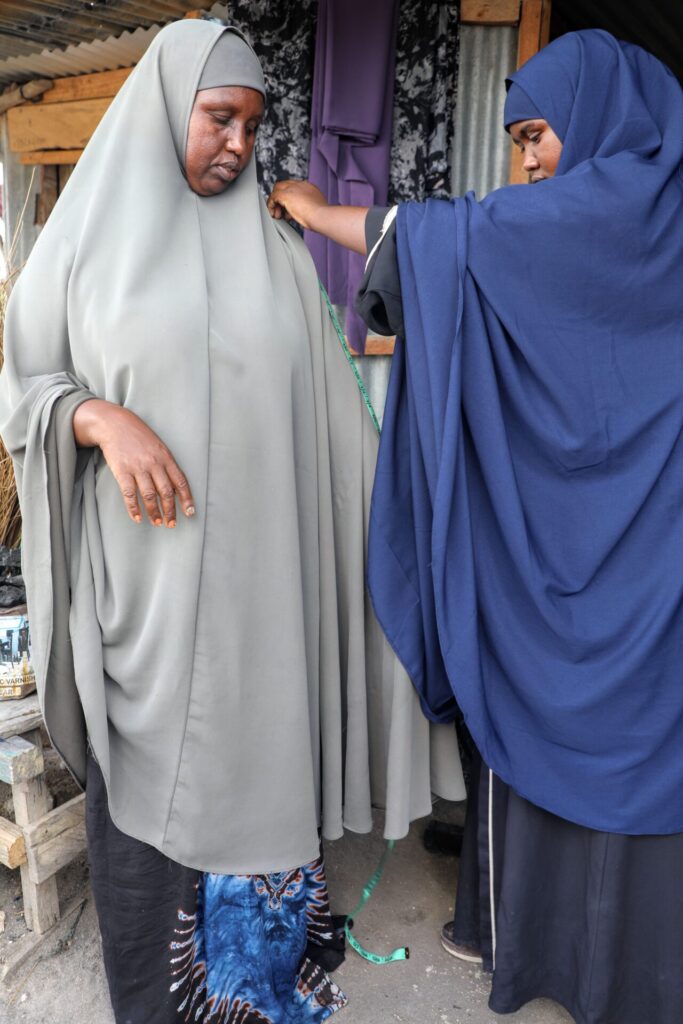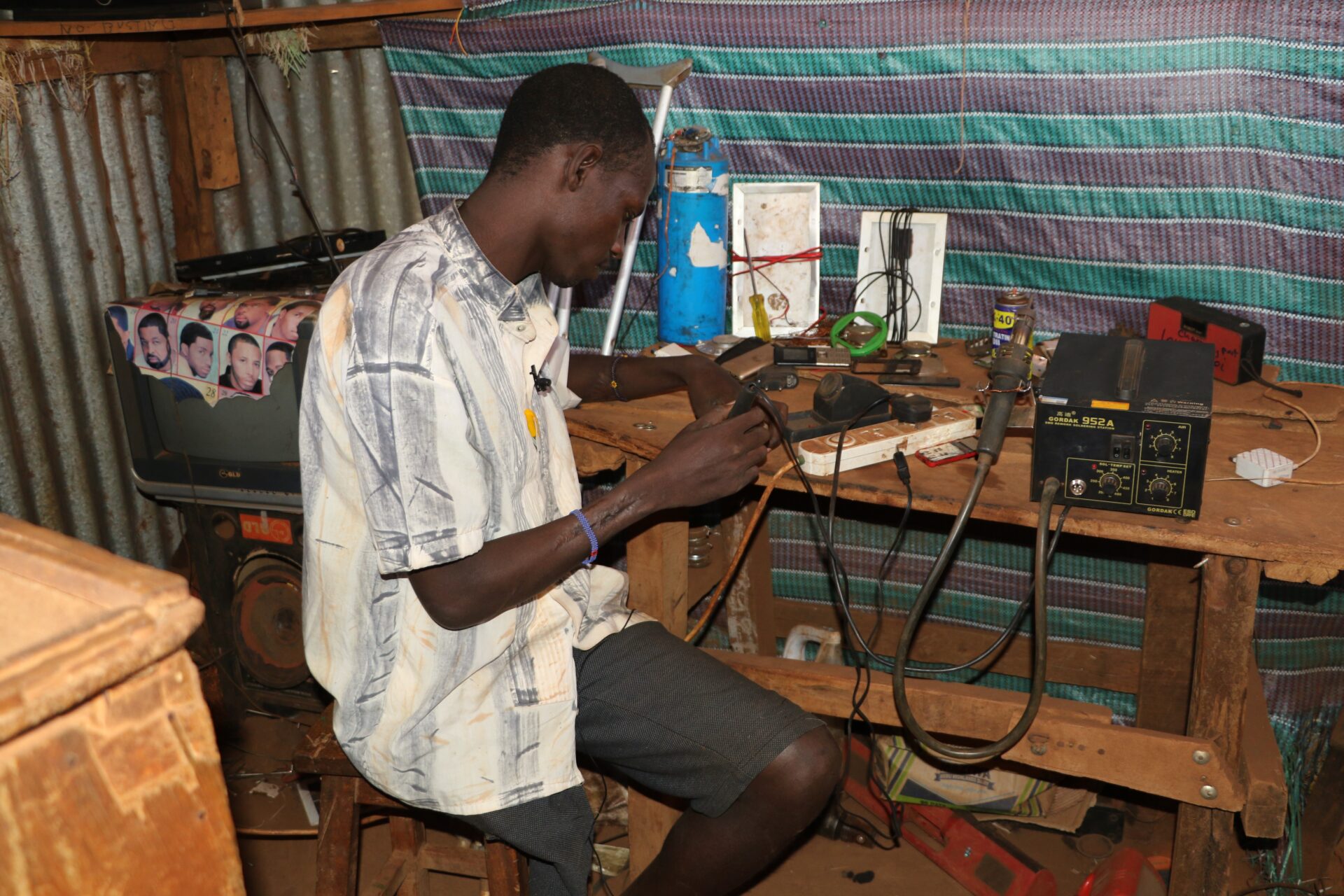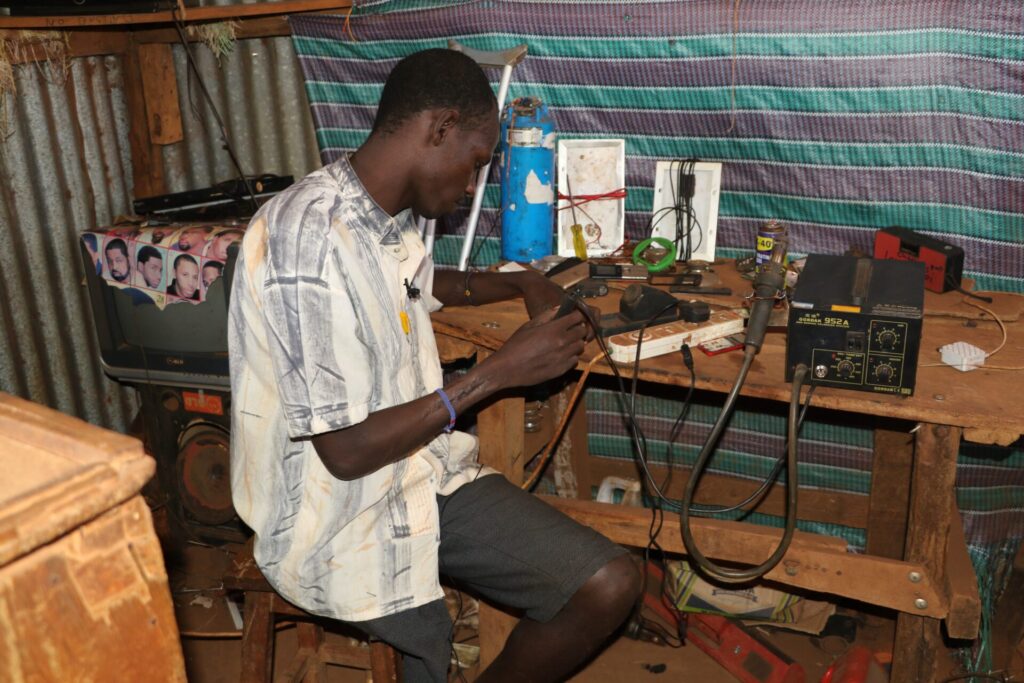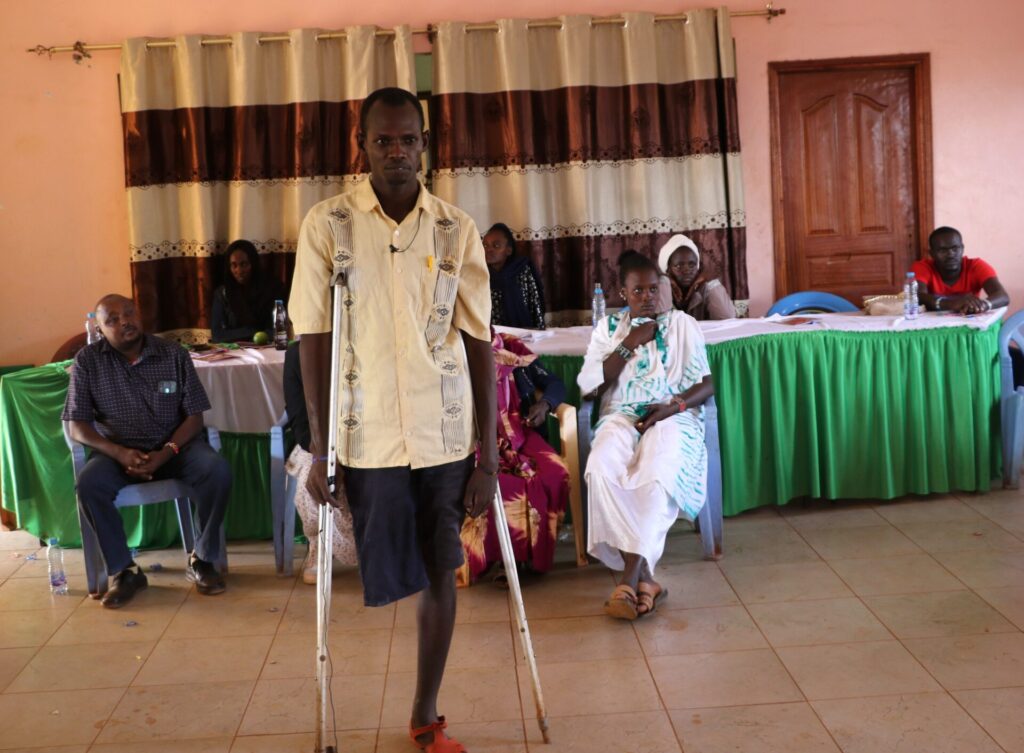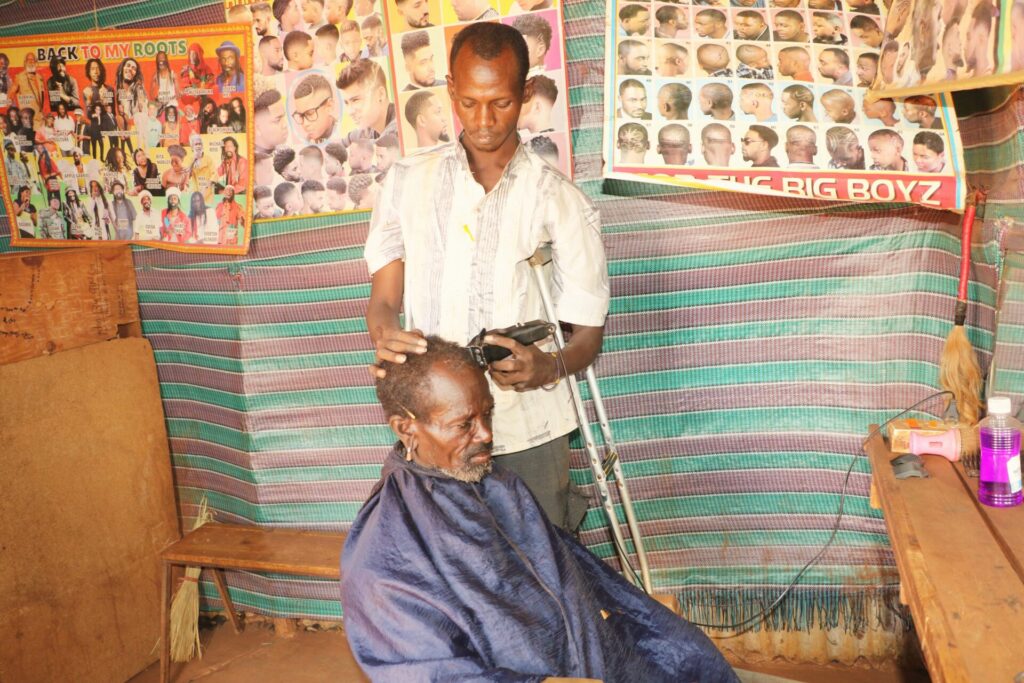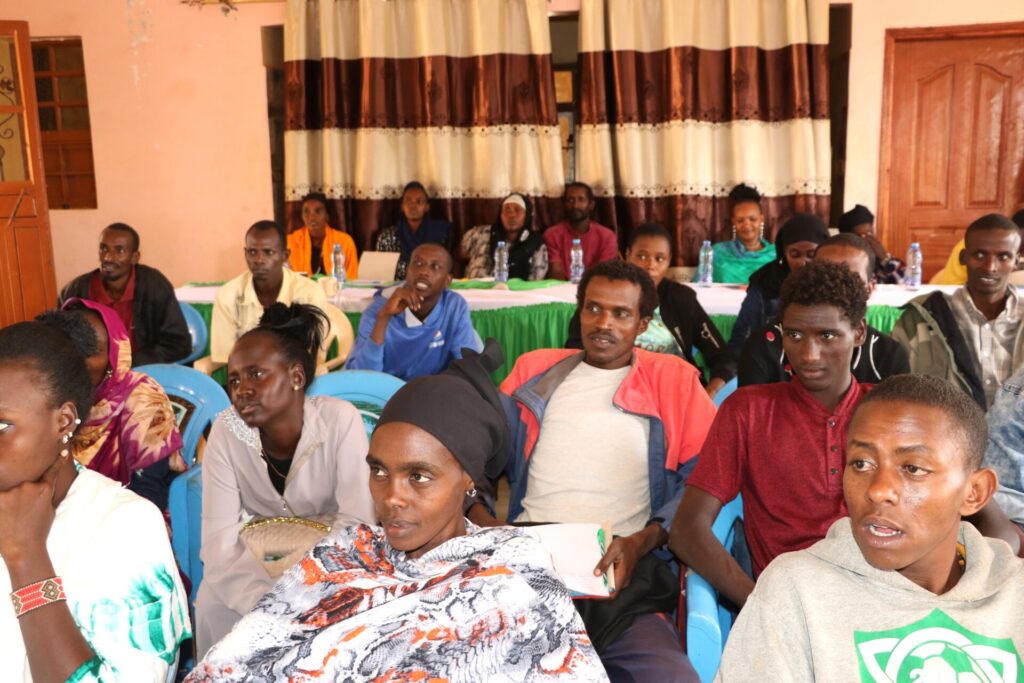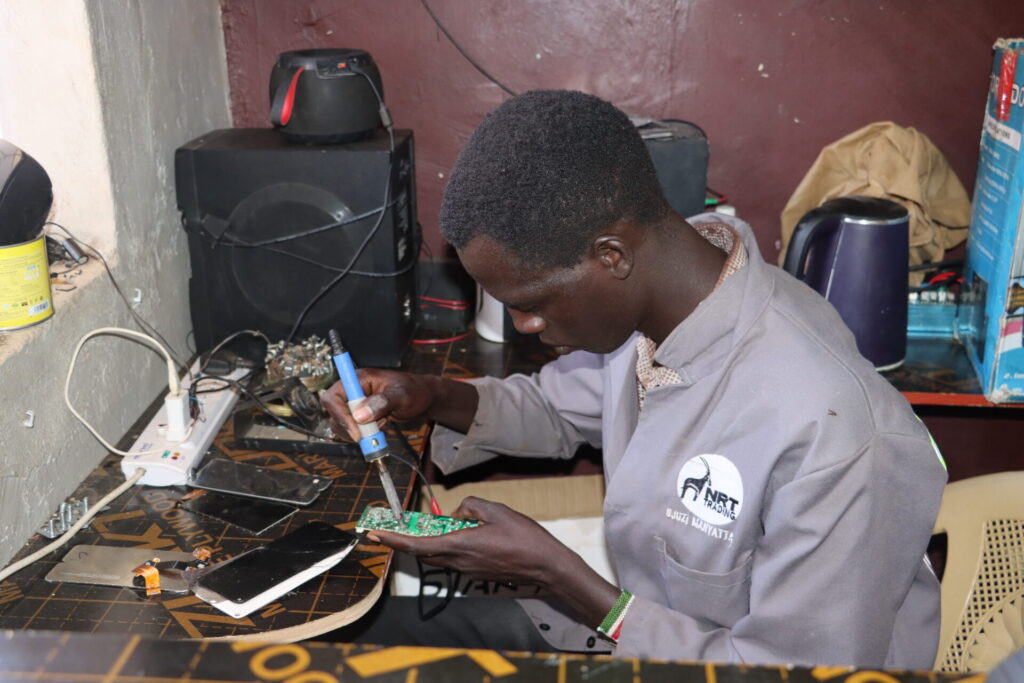
Born into a Turkana family in a remote village in northern Kenya’s Isiolo County, Jonathan Nawapa’s early life was shaped by financial crisis.
In a desperate attempt to improve their circumstances, Jonathan’s family relocated to the outskirts of Isiolo Town. However, escalating living costs and the difficulties of adjusting to a new environment compelled Jonathan’s parents to make tough decisions, including discontinuing Jonathan’s education.
Consequently, he withdrew from school after completing Grade 7. Ever since he was a little boy, Jonathan had been fascinated by the art of fixing things. Now that he had plenty of free time, he spent countless hours working beside his uncle, who often repaired household equipment such as radios, and learnt by observing each step.
As fate would have it, Jonathan’s uncle passed away, and he felt the loss deeply. Death had robbed him of a mentor. Despite his devastation, Jonathan followed in the footsteps of his uncle and began repairing small gadgets in the house, including watches and radios. Having no access to electricity, he adopted his uncle’s improvisational techniques. He would heat a five-cent coin on a charcoal stove, then use it as a makeshift soldering tool to connect wires. His ingenuity did not go unnoticed. Over time, the community began to turn to him for assistance fixing broken equipment.
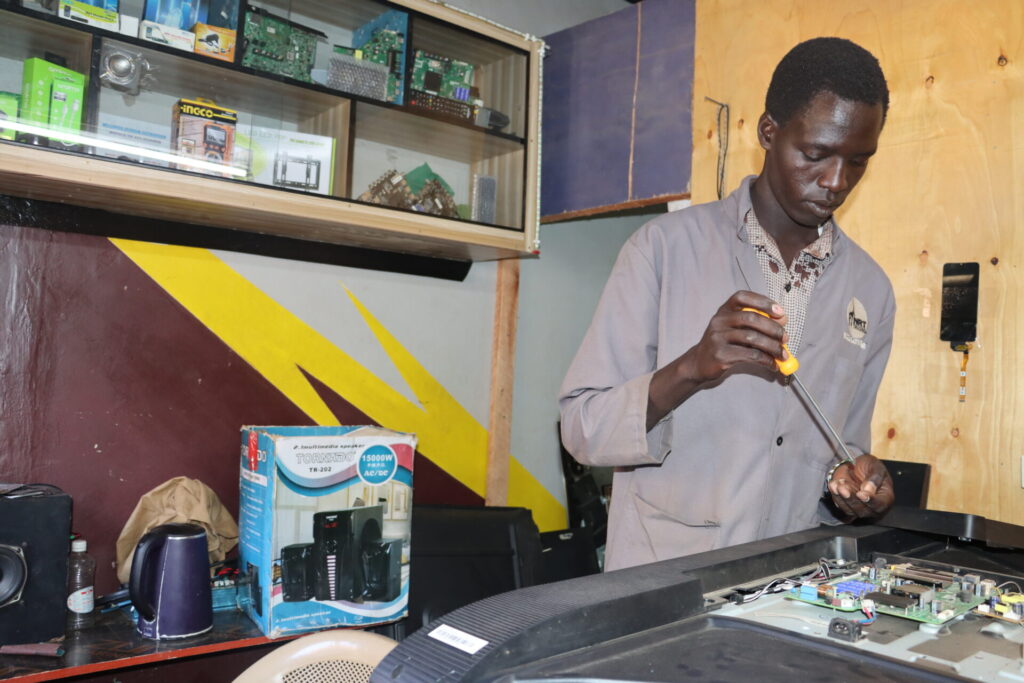
After turning 20, Jonathan sought ways to learn the intricacies of equipment repair and lift his family out of poverty. In Isiolo Town, he met an experienced technician who took him under his wing as an apprentice for five years. During this period, he learnt to repair a variety of home appliances. His interest was piqued, and he dreamed of expanding his skill set to include mobile phone repair.
Jonathan’s big break came when a Leparua Community Conservancy board member noticed his dedication and informed him of the ICEP-funded Ujuzi Manyattani vocational training programme. Without hesitation, Jonathan enrolled in the mobile phone repair and maintenance course. The next three months were life-changing for him, as he learned essential repair techniques from a professional TVET trainer.
On February 13, 2024, 140 trainees graduated from Ujuzi Manyattani, and Jonathan was among them.
Like the other graduates, Jonathan was issued a certificate and a start-up toolkit, enabling him to establish a business right after graduation. Soon after, he joined a Village Savings and Loans Association and borrowed Ksh 30,000 (USD 232.55) to rent a small workshop and purchase additional tools.
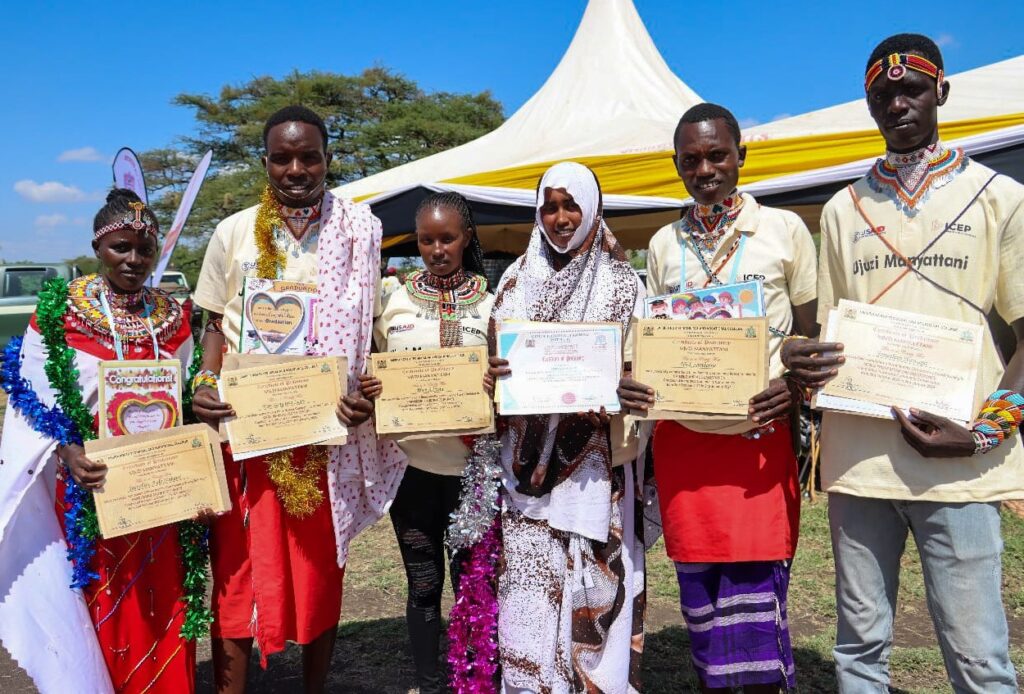
Today, Jonathan’s shop is a bustling hub of electronic repairs, attracting nearby clients as well as those from neighboring Samburu and Marsabit Counties, who send in their devices via bus. He earns at least Ksh 3,000 daily (approximately USD 23.25) and up to Ksh 10,000 (approximately USD 77.51) for complex repairs, such as fixing television screens.
Jonathan shares his workshop with a business partner. Their combined expertise enables them to expand their service offering, which ranges from repairing phones, thermostats, coils, cables, and kettle fuses to fixing television backlights, motherboards, power supplies, and screens.
Jonathan envisions stocking the workshop with spare parts to reduce costs and training youth in his community. He aspires to create opportunities for others like him to learn profitable skills, so they too can improve their livelihoods, just as he has.

